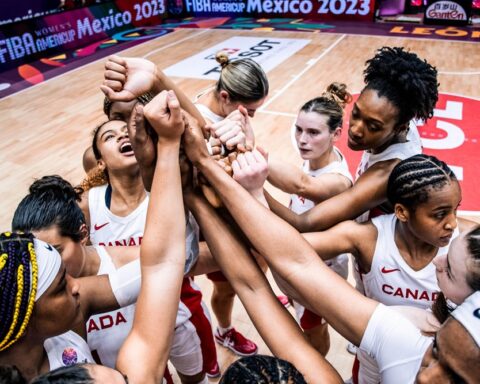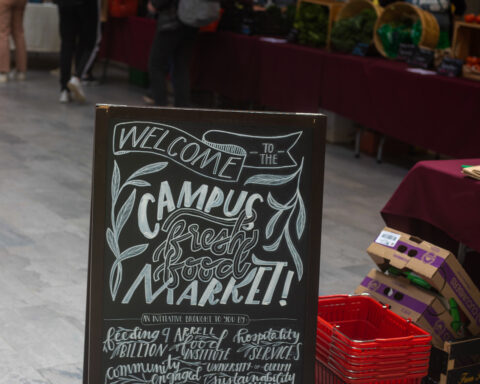International students and children of immigrants say pursuing post-secondary studies in journalism can motivate both encouragement and opposition from their parents.
Sharif Hasan’s parents didn’t argue with him about his program choice – although they did express concerns. Hasan immigrated to Canada from Bangladesh in 2013 to pursue a master’s degree in journalism at Carleton University in Ottawa.
According to Hasan, the life of a journalist in Bangladesh is “not ideal.”
“Most young journalists struggle for years to get employed at a good media house,” Hasan explains. “Many of them don’t get a permanent job at all.”
Money in journalism has become an issue internationally due to the increased number of freelancers, the shift to digital platforms and the shrinking of newsroom staff in order to save money.
Media outlets across North America have laid-off hundreds of workers in recent years. For example, Bell Media laid off 380 workers and Sports Illustrated magazine cut its entire photojournalism department in 2015.
Parents like programs that offer clear-cut paths to “solid careers”.
Journalism not always a ‘safe’ option
Parents like programs that offer clear-cut paths to “solid careers” says Maryam Shah, a reporter for the Toronto Sun, who came to Canada from Pakistan to study journalism at the University of Toronto.
Shah wanted to be a reporter since she was 11 and says she “pushed back” when her parents insisted she study law or medicine.
“In Pakistan, that’s just what you do,” Shah shares. “Anyone who says they want to write or travel the world, they look at you like there’s something wrong with you.”
Shah adds that parents are becoming more understanding when it comes to their children’s career choices, but they still prefer ‘safe’ options like engineering or teaching.
Fewer opportunities for minority journalists
Journalism hasn’t proven to be a stable career for Hasan; he struggled to overcome the language barrier, as well as to find work in journalism, so he dropped out of the program.
Hasan’s situation is not all that unique for visible minority or ethnic journalists.
While there is a growing number of visible minorities graduating from Canadian journalism schools, they are not necessarily the ones getting the jobs.
While there is a growing number of visible minorities enrolling in, and graduating from, Canadian journalism schools, they are not necessarily the ones getting the jobs.
Research has found that some of the perceived reasons for the under representation of visible minorities in journalism include hiring biases, fear of harassment and networking barriers.
While Hasan says he never personally experienced those challenges, he admits they were things both he and his friends were concerned about.
“In fact, they have discouraged me to go for journalism because of these issues,” he remarks.
Ingrid Grange immigrated to Canada from Jamaica and encouraged her daughter, Ashleen, in her interest to become a journalist. Grange says she hopes that the barriers students face as ethnic minorities “will have the opposite effect” on them.
“I would hope that it would make people of different ethnicities want to be in the media more so they can show that we’re out there and we should be taken seriously,” she says.
Some visible minority journalists worry about their ethnicity being a defining factor of who they are and fear being perceived as a ‘diversity hire’ by their peers according to a MediaSmarts study.
“I think you have to turn that tokenism around and use it in your favour.”
According to Grange, Ahsleen, who is now in her fourth year of journalism studies at the University of Toronto, says she sometimes has difficulty being taken seriously as a journalist, both because she is a woman and because she is black.
“I think you have to turn that tokenism around and use it in your favour,” says Grange. “It’s hard to get in the door, so if that’s your way through the door don’t hold back. You can’t change things from the outside,” she adds.
Pursuing journalism despite risks, barriers
While there may be risks and barriers involved that keep first- and second-generation Canadians – often visible minorities – from careers in this field, discouraging them from pursuing journalism only perpetuates the problem.
According to Shah, journalists benefit from sharing a newsroom with people from diverse backgrounds. She says she has been able to explain and give context to certain topics which allowed her to “tone down the ignorance” amongst her peers.
Having different ethnicities and perspectives means that inevitably not everyone will agree all the time. Shah notes that sometimes she and her peers “fight” over story ideas, and that she considers this a positive.
“If we all had the same thought processes or the same experiences we wouldn’t put out a very interesting paper,” she says.
Editor’s Note: NCM has condensed and revised this article to include Ingrid Grange as an additional source. The original article was published on November 12, 2015.
Marcus is a poet, editor and freelance journalist based in Toronto. He currently works with New Canadian Media as an Editor and as a Freelance Writer for ByBlacks.com, The Edge: A Leader's Magazine and The Soapbox Press.




